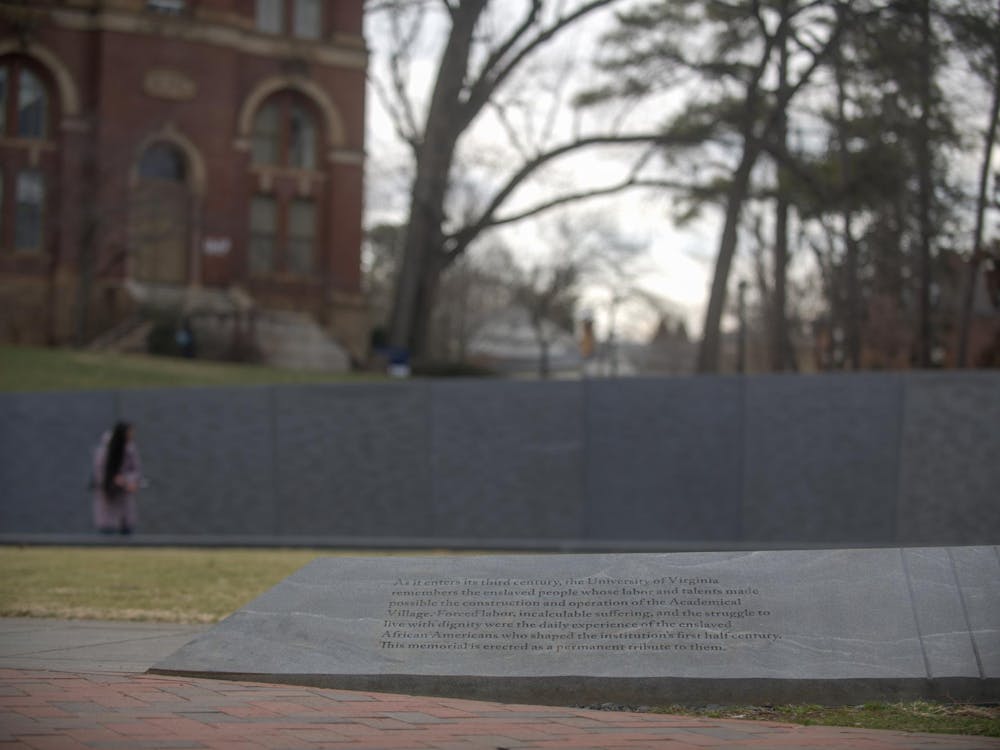Although the altitude in the Shenandoah Mountains barely rivals that of the commanding Rockies on the other side of the continent, the rocky trails along Albemarle's rolling hills provide ample opportunity to slap on a helmet and some spandex.
Mountain biking is alive and well at the University and even though there is no official program here, two University students qualified to compete in the Collegiate Mountain Biking National Championships in Idaho last month.
Through stellar finishes in local races, third-year Commerce student Cara Coolbaugh not only landed a spot as a national competitor, but she racked up the highest number of points in the ACC. And this was only her first year of racing.
Fourth-year College student Pierce Louis never rode seriously until he got a mountain bike to get from class to class three years ago and tried out some trials behind O-Hill. He too ventured to the national competition last month to race.
"The caliber of riders at nationals was a whole lot better than what I've seen in other races," Louis said. "Most of the top guys are pros that are still in college." One racer Louis met at nationals was a member of the U.S. National Cross-Country Cycling team, but even with that experience came in 12th out of eighty. Louis finished in the middle of the pack.
"It was cool to see how much farther I could go if I keep training," said Coolbaugh, who finished in the top third of the 100 women racers.
Fourteen slots are allotted in national competition for women from the ACC, but only four even qualified to go. Coolbaugh attributed the small number of female racers to the time consumption of the sport.
"You miss a lot of school, and if you're not in shape, it's just a pain," said Coolbaugh, leaning forward on her toned quadriceps. But Coolbaugh added modestly that as long as someone is willing to commit to the weekend qualifying races, "just about anyone who can ride a bike could go to [nationals]."
Ruth Stornetta, a member of the medical faculty and the cycling club team coach, thinks there's more to it than that.
"I think women perceive mountain biking as kinda scary. There is a lot of crashing that happens," Stornetta said. But women's collegiate mountain bike racing was only introduced two or three years ago and still is very new, she added. Stornetta sees the sport picking up momentum as more and more universities, primarily out west, are introducing official programs.
Coolbaugh and Louis both compete in cross-country racing, with the women's course being three six-mile laps and the men's 32 miles long. Most competitors finish within two-and-half to three hours.
Another mountain bike racing category at nationals was the downhill racing, a specialty that is hard to master in the docile terrain outside Charlottesville. To train for downhill, bikers take ski lifts to the tops of mountains before the ski seasons starts and fly down the trails that haven't yet been hit with snow. In the dual-slalom category, two riders must trace around flags and handle bank turns, a skill that Coolbaugh said is more about control than pedaling.
In preparation for the cross-country mountain biking race at nationals, Louis and Coolbaugh trained primarily on the road, rather than on trails, because bikers can keep a consistent speed up on the street. Louis consulted Stornetta, who has a Cycling Federation coaching license in addition to her coaching experience, to devise a condensed training program. The focus was on monitoring Louis's heart rates. By determining when his body shifted from aerobic to anaerobic, they could make sure his body was working efficiently.
"Your body works at different physical levels. It works with using oxygen or without using oxygen. When you go to high levels of exercise your body goes beyond just using oxygen," Stornetta explained.
And at an altitude of 5000 ft. in the mountains of Idaho, "you could tell you were breathing hard," Coolbaugh said. "In Virginia, there are a lot of short, steep descents and rolling hills. But in Idaho, there was a lot of climbing," she groaned, describing the constant pedaling up relentless inclines.
The race officials at nationals allowed all competitors to pre-ride the trail the day before - something both Louis and Coolbaugh see as essential. Coolbaugh said racers have to make sure they are "gearing" in the right spots, learning where to shift throughout the race. Louis tries to find the "good lines" and searches for the best route through technical sections of the trail.
"You never want to come off your bike," Louis said.
Last year Louis rode with members of the mountain biking club nearly every day and still goes out about once a week with them this year when he is not sticking to his anaerobic training. The mountain biking club funded Louis's trip to Idaho. Coolbaugh too participates with the University's biking club, but more often heads out to O-Hill or Walnut Creek to ride some trails.
How far will these bikers go?
"Since Pierce just started biking, it's hard to know what his potential is, if he can turn racing into a career," Stornetta said.
Maybe not racing yet, but after biking across Spain this summer with a friend, Louis has applied for jobs to lead mountain bike tours through South America.
As for Coolbaugh, she's not done yet either.
"The kids at nationals from Colorado were in incredible shape," she said. "It was a yardstick for how much I can improve"






